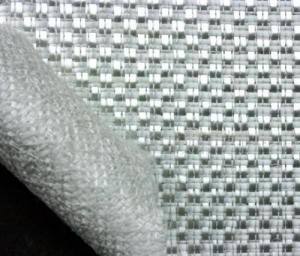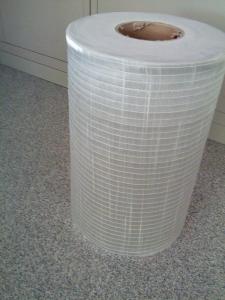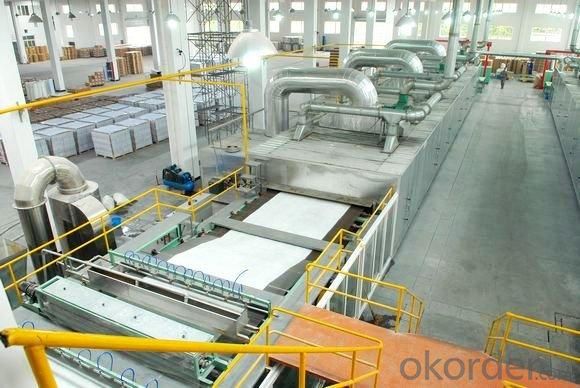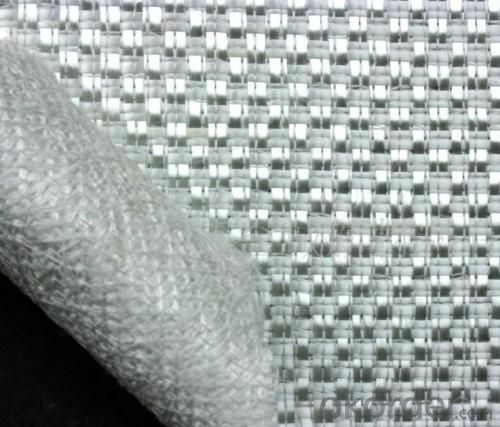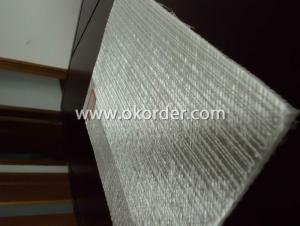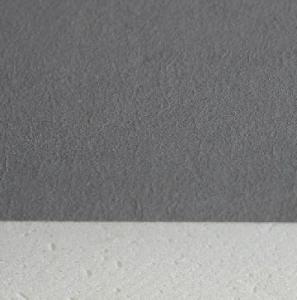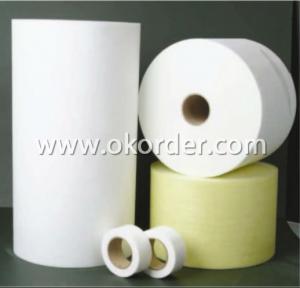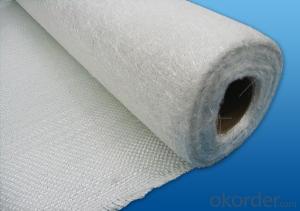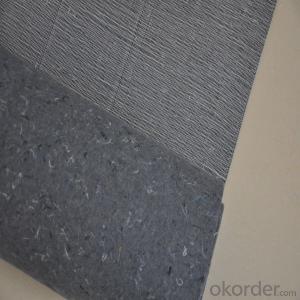Fiberglass Combo Mat
- Loading Port:
- China Main Port
- Payment Terms:
- TT or LC
- Min Order Qty:
- 2Ton kg
- Supply Capability:
- 600TON PER MONTH kg/month
OKorder Service Pledge
OKorder Financial Service
You Might Also Like
Specification of Fiberglass Combo Mat
1.ISO9001:2008 quality control certificate.
2. Fiberglass Combo Mat
3. Width ranging from 50mm to 2400mm, no binder used.
Product Characteristics of Fiberglass Combo Mat
1 Width ranging from 50mm to 2400mm, no binder used.
2 Good wet out in resins.
3 Fiber with high arranging density, high strength.
4 With regular interspacing, benefit to resin flow and impregnation.
5 Excellent stability, benefit to improve efficiency.
6 Excellent pressing performance, light weight, high strength.
Application of Fiberglass Combo Mat
Its widely used in FRP pultrusion, hand lay-up, RTM process to make FRP boat hulls, car body, panel and sheets, cooling parts and doors, various profiles.
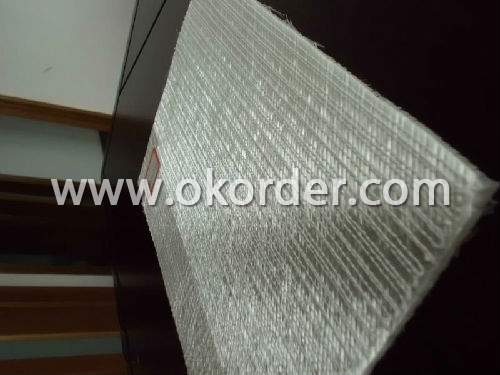
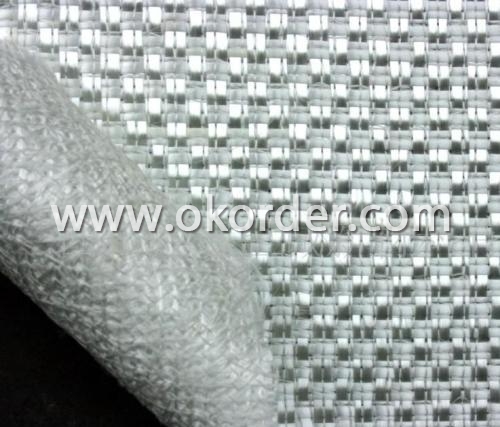
- Q: What is the tear resistance of fiberglass mat tissue?
- The tear resistance of fiberglass mat tissue is typically high, making it a strong and durable material that is resistant to tearing.
- Q: Can fiberglass mat tissue be used for pipe insulation?
- Typically, pipe insulation does not involve the use of fiberglass mat tissue. Fiberglass mat tissue is a thin substance commonly utilized for reinforcement in different industries, rather than for thermal insulation or preventing heat loss in pipes. When it comes to insulating pipes, materials like foam, mineral wool, or fiberglass pipe insulation are more commonly employed. These materials are specifically designed to offer thermal insulation and safeguard pipes against heat loss, condensation, and freezing.
- Q: Does fiberglass mat tissue provide any moisture insulation?
- Yes, fiberglass mat tissue provides some level of moisture insulation. Fiberglass is known for its water-resistant properties, and the mat tissue made from fiberglass helps to further enhance this characteristic. It acts as a barrier against moisture, preventing it from seeping through and causing damage to underlying materials. However, it is important to note that fiberglass mat tissue is not completely waterproof and may allow some moisture to penetrate over time. Therefore, it is recommended to use additional moisture insulation materials in situations where complete waterproofing is required.
- Q: What are the different types of resins compatible with fiberglass mat tissue?
- Fiberglass mat tissue can be used with various types of resins. These resins, including polyester resin, epoxy resin, vinyl ester resin, and polyurethane resin, offer different properties and benefits. Polyester resin is widely used in fiberglass mat applications due to its cost-effectiveness and good mechanical properties. It is suitable for a wide range of applications and provides resistance to water and chemicals. Working with polyester resin is also easy. Another popular choice is epoxy resin, which offers excellent mechanical properties, high strength, and resistance to chemicals and moisture. It is commonly used in industries that require superior strength and durability, such as aerospace and marine industries. Vinyl ester resin is a hybrid resin that combines the best properties of polyester and epoxy resins. It offers high strength, good corrosion resistance, and excellent durability. This resin is commonly used in applications that require high chemical resistance and superior mechanical properties. Polyurethane resin is a versatile option that can be used with fiberglass mat tissue. It provides excellent flexibility, impact resistance, and adhesion properties. This resin is often used in applications that require high flexibility and resistance to abrasion, such as automotive parts and sporting goods. Ultimately, the selection of the resin depends on specific application requirements, including mechanical properties, chemical resistance, flexibility, and cost.
- Q: How does the strength of fiberglass mat tissue compare to other reinforcement materials?
- The strength of fiberglass mat tissue is comparable, if not superior, to other reinforcement materials. It offers excellent tensile strength, high resistance to corrosion, and good thermal insulation properties. Additionally, it is lightweight, flexible, and cost-effective, making it a popular choice in various industries such as construction, automotive, and aerospace.
- Q: Can fiberglass mat tissue be used for making electrical enclosures?
- No, fiberglass mat tissue is not suitable for making electrical enclosures. Electrical enclosures require materials that have good electrical insulation properties to prevent electrical shocks and short circuits. Fiberglass mat tissue is primarily used for reinforcement in composites and does not possess the necessary electrical insulation properties. Materials such as plastics, polymers, or metals with appropriate electrical insulation characteristics should be used for making electrical enclosures.
- Q: Can fiberglass mat tissue be used for repairing fiberglass bathtubs?
- Yes, fiberglass mat tissue can be used for repairing fiberglass bathtubs. Fiberglass mat tissue is a thin, flexible material that is used for reinforcing and strengthening fiberglass surfaces. It is commonly used in the repair and restoration of fiberglass products, including bathtubs. The mat tissue is typically applied over the damaged area, along with a layer of resin, to create a strong and durable repair. The mat tissue helps to reinforce the weakened or damaged areas of the bathtub, restoring its integrity and preventing further damage. However, it is important to note that the success of the repair will depend on the extent of the damage and the skill of the person performing the repair. It is recommended to consult a professional or follow manufacturer's instructions for the best results.
- Q: What are the different reinforcement patterns available for fiberglass mat tissue?
- There are several different reinforcement patterns available for fiberglass mat tissue, each offering unique benefits and characteristics. 1. Random Chopped Strand Mat (CSM): This is a widely used reinforcement pattern in fiberglass mat tissue. It consists of randomly chopped strands of fiberglass that are bound together with a binder. CSM provides good strength and stiffness properties, making it suitable for a wide range of applications. 2. Continuous Strand Mat (CSM): This reinforcement pattern consists of continuous strands of fiberglass that are evenly distributed and bound together with a binder. Continuous strand mat offers improved strength and stiffness compared to random chopped strand mat, making it ideal for applications that require higher performance. 3. Woven Roving: Woven roving is a reinforcement pattern that consists of interwoven bundles of fiberglass yarns. It provides excellent strength and impact resistance, making it suitable for applications that require high load-bearing capabilities. 4. Multiaxial Fabrics: Multiaxial fabrics are made up of multiple layers of fiberglass fibers that are oriented in different directions (usually at 0°, 90°, and ±45° angles). This reinforcement pattern offers balanced strength properties in multiple directions, making it ideal for applications that require isotropic properties. 5. Stitch-Bonded Fabrics: Stitch-bonded fabrics are made by mechanically stitching together layers of fiberglass fibers. This reinforcement pattern provides good drapability and conformability, making it suitable for applications that require complex shapes or curved surfaces. 6. Knitted Fabrics: Knitted fabrics are made by interlocking loops of fiberglass yarns. This reinforcement pattern offers excellent flexibility and ease of handling, making it suitable for applications that require conformability and flexibility. Each reinforcement pattern has its own advantages and is used in different applications based on the specific requirements of strength, stiffness, impact resistance, flexibility, or conformability. It is important to select the appropriate reinforcement pattern based on the desired end-use properties and manufacturing process.
- Q: What is the expected lifespan of fiberglass mat tissue in sports facility applications?
- The expected lifespan of fiberglass mat tissue in sports facility applications can vary depending on various factors such as the quality of the material, the level of maintenance and care, and the specific conditions in which it is used. However, generally speaking, fiberglass mat tissue has a relatively long lifespan and is known for its durability. When properly installed and maintained, fiberglass mat tissue can last for several decades. It is resistant to corrosion, rot, and degradation, making it suitable for use in sports facilities where it may be exposed to moisture, humidity, and other environmental factors. To maximize the lifespan of fiberglass mat tissue in sports facility applications, regular inspections, cleanings, and repairs may be necessary. It is also important to follow manufacturer recommendations for installation and maintenance to ensure optimal performance and longevity. It is worth noting that while fiberglass mat tissue is known for its durability, it may still experience wear and tear over time, especially in high-impact areas or in facilities with heavy usage. In such cases, periodic replacements or repairs may be required to maintain the integrity and functionality of the material. Overall, fiberglass mat tissue is a reliable and long-lasting option for sports facility applications, and with proper care and maintenance, it can provide excellent performance and durability for many years.
- Q: Does fiberglass mat tissue require any surface preparation before application?
- Yes, fiberglass mat tissue typically requires some surface preparation before application. This is to ensure proper adhesion and bonding between the fiberglass mat tissue and the surface it is being applied to. The exact surface preparation required may vary depending on the specific application and the condition of the surface. However, some common steps in surface preparation for fiberglass mat tissue include cleaning the surface to remove any dirt, grease, or other contaminants, sanding or roughening the surface to create a better bonding surface, and applying a primer or other bonding agent if necessary. It is important to carefully follow the manufacturer's instructions and recommendations for surface preparation to ensure the best results and optimal performance of the fiberglass mat tissue.
1. Manufacturer Overview
| Location | Zhejiang, China |
| Year Established | 1969 |
| Annual Output Value | Above US$ 150 Million |
| Main Markets | overseas companies in Hongkong, Canada, South Africa, South Korea, India, Italy, Singapore, France and many other countries and regions. |
| Company Certifications | ISO9001;ISO14001 |
2. Manufacturer Certificates
| a) Certification Name | |
| Range | |
| Reference | |
| Validity Period |
3. Manufacturer Capability
| a) Trade Capacity | |
| Nearest Port | Shanghai |
| Export Percentage | 40%-50% |
| No.of Employees in Trade Department | 21-50 People |
| Language Spoken: | English |
| b) Factory Information | |
| Factory Size: | Above 5000,000 square meters |
| No. of Production Lines | Above 5 |
| Contract Manufacturing | |
| Product Price Range | Average |
Send your message to us
Fiberglass Combo Mat
- Loading Port:
- China Main Port
- Payment Terms:
- TT or LC
- Min Order Qty:
- 2Ton kg
- Supply Capability:
- 600TON PER MONTH kg/month
OKorder Service Pledge
OKorder Financial Service
Similar products
Hot products
Hot Searches
Related keywords

